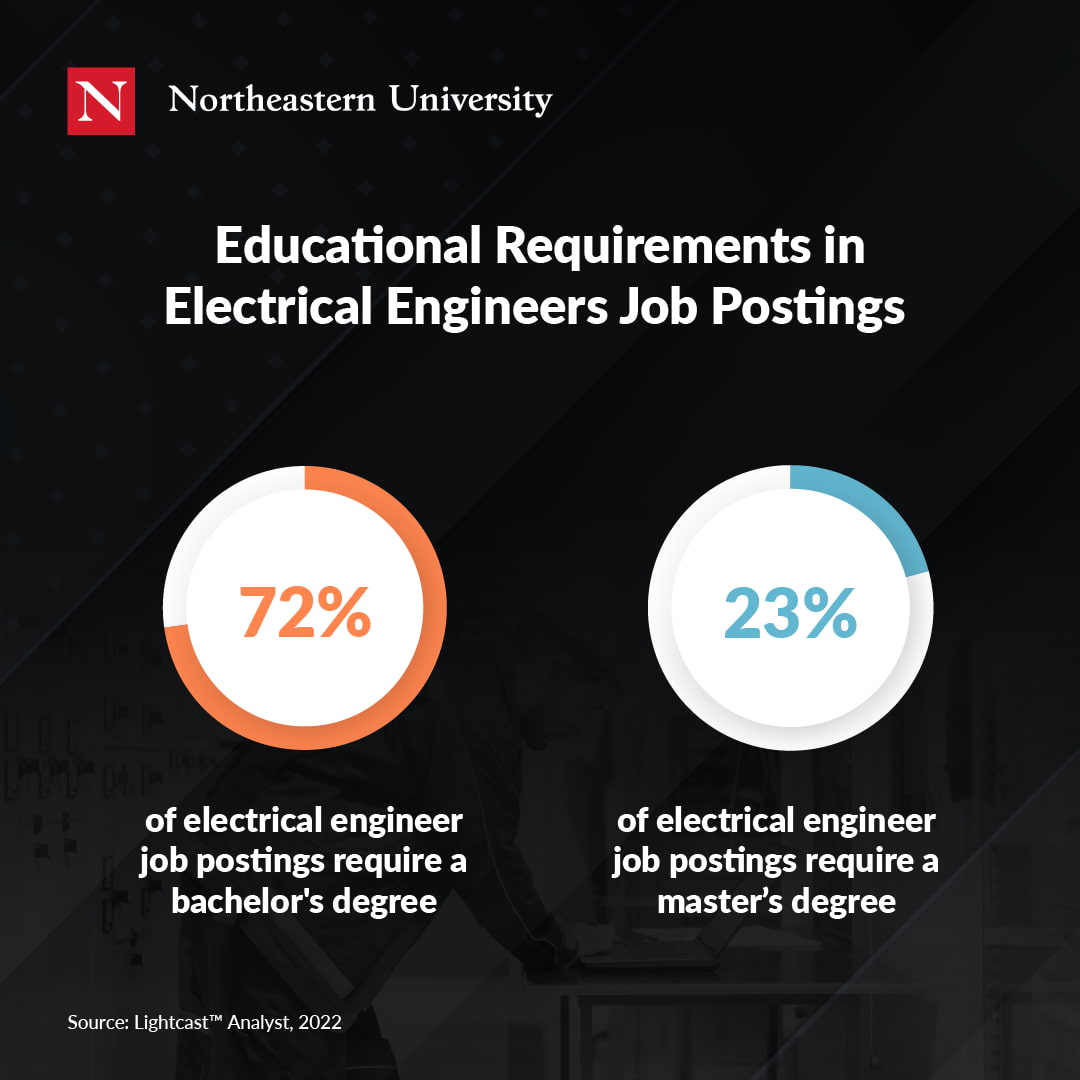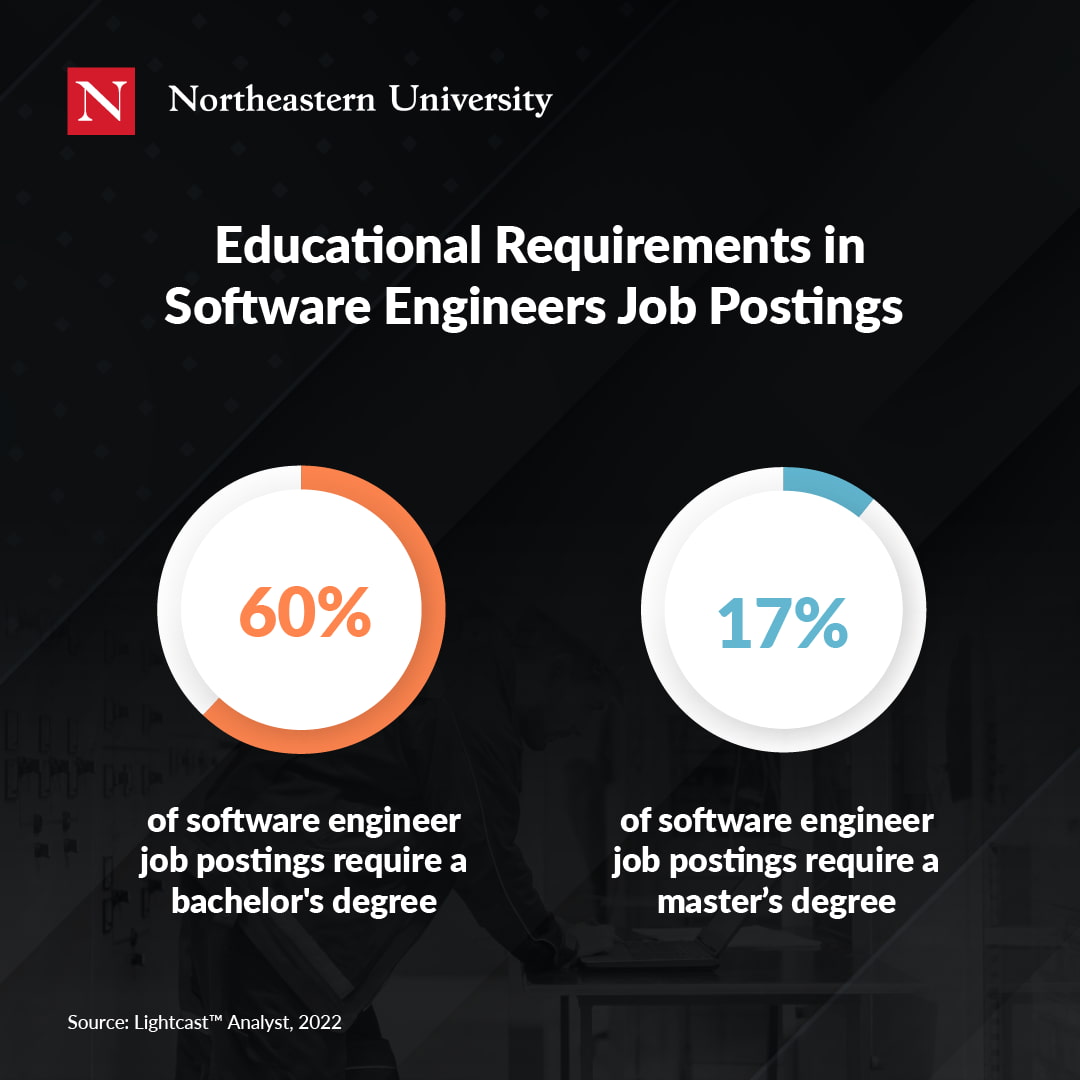As artificial intelligence makes rapid waves around the globe, speed and simplicity have become an expected luxury. Smargrids generate, transmit, and distribute reliable and clean energy across continents. Wireless and high-speed communication connects people and devices (Internet of Things) across the world. Research in smart materials, imaging systems, and innovative sensors has helped healthcare professionals. It’s easy to forget that behind every light switch, cell phone, medical imaging system, and secure password sits an electrical or computer engineer, ensuring convenience remains a part of our daily lives.
Even within the broader scope of electrical and computer engineering, there’s a wide range of career opportunities. From conducting cutting-edge research on machine learning and digital logic designs to configuring wireless networks and power grids, these professionals make a real difference in real time.
As you decide if an electrical and computer engineering degree is right for you, here’s an overview of what these engineering subsets achieve, the steps you need to take to gain employment as an engineer, and how you can start your career journey as soon as possible.
What Is Electrical Engineering?
Electrical engineering involves the study and design of devices and equipment that use electricity, electromagnetism, and electronics. Examples include the intricate electrical systems within computers, cell phones, vehicles, radars, power grids, and aircrafts. Electrical engineers are the brains behind the tiny devices and massive apparatus that power society as we know it. These professionals are often employed at corporations like General Motors, Verizon, and Duke Energy.
What Is Computer Engineering?
Computer engineering (CoE or CpE) is a branch of electrical engineering that integrates several fields of computer science and electronic engineering required to develop computer hardware and software. Computer engineers not only need training in electronic engineering, software design, and hardware-software integration but also in software engineering. Many professionals in this field work at top companies such as Apple, Meta, and IBM.
5 Steps To Becoming an Electrical and Computer Engineering Professional
Even without an existing engineering background, pursuing this profession is possible. Here are five steps any professional can take to enter this exciting field.
1. Earn a Bachelor’s Degree
Electrical and computer engineering jobs typically require a bachelor’s degree. While studying engineering as an undergraduate student is an added bonus, an engineering-specific degree is not always required. According to a report analyzing job posting data, 72 percent of electrical engineering positions require a bachelor’s degree, along with 60 percent of software engineering positions. Furthermore, 23 percent of electrical engineering positions require a master’s degree, as well as 17 percent of software engineering job postings.
It’s important to keep in mind that most software and electrical engineering jobs require at least a bachelor’s degree. If you hold a degree in a non-STEM discipline, such as a Bachelor of Arts, additional coursework could be necessary before pursuing any engineering graduate program.
2. Identify a Career Path
There are multiple concentrations within the electrical and computer engineering field, making it important to know what kind of work you want to pursue. Foundational education is essential; but having a strong understanding of your niche will further help you determine your path to becoming an electrical and computer engineering professional.
Schools with highly regarded electrical and computer engineering programs, such as Northeastern University, have a variety of concentrations that can help guide you in this journey, offering subjects such as:
- Communication, Control, and Signal Processing (CCSP): This concentration focuses on the development of methodologies and algorithms for designing communications, control, and signal processing applications. Common career outcomes in this concentration include positions in the wireless and mobile communications industry.
- Computer Networks and Security (CNWS): A specialization in computer networks and security prepares students for multiple roles, including wired/wireless network analysis and protocol design, sensor network design, software and hardware security, and Internet of Things (IoT).
- Computer Systems and Software (CSYS): Students who learn about computer systems and software often pursue careers including microprocessor design and verification, embedded hardware and software development, performance analysis and modeling, advanced computer system design, and operating system design.
- Computer Vision, Machine Learning, and Algorithms (CVLA): By completing coursework in computer vision, algorithmic approaches, machine learning, pattern recognition, big data analytics, and visualization, students are prepared for careers in industries such as vision systems, big data analytics and mining, vision/image processing, visualization systems and software, and general algorithmic approaches to problem-solving.
- Hardware and Software for Machine Intelligence (HSMI): As artificial intelligence solutions become more prevalent, these multifaceted systems engineers can bridge the gap between theory, software, and hardware. Students go on to various careers creating and implementing solutions fluent in theoretical and software generation aspects of technology.
- Electromagnetics, Plasma, and Optics (ELPO): This area of engineering is concerned with the theory and applications associated with the launching, propagation, confinement, and control of electromagnetic, acoustic, and optical wave fields. This concentration prepares students for careers in fields such as antenna engineering, radar, sonar, wavefield imaging, optics, photonics, and magnetics.
- Microsystems, Materials, and Devices (MSMD): Students learn fundamental theories, design approaches, fabrication methods, and measurement techniques for various emerging products with electronic components. This concentration is excellent for individuals interested in careers that use standard simulation software tools and equipment.
- Power Systems, Power Electronics, and Motion Control (POWR): This concentration examines the secure and efficient operation of electric transmission and distribution systems and the design, modeling, and control of power converters and renewable energy systems. Those who chose this concentration eventually pursue careers related to modeling and analyzing large-scale power grids.
3. Enroll in a Master’s Degree Program
Finding an electrical and computer engineering master’s degree program that fits your needs is a critical next step. Becoming a graduate student in this field won’t only provide you with the fundamental concepts and hands-on experience you’ll need to succeed in leadership roles—it directly affects your earning potential as well.
Electrical and computer engineering graduates with a master’s degree earn thousands of dollars more a year than those with a bachelor’s. For example, according to job postings data, electrical engineers with a bachelor’s earn an average salary of $102,800 per year, while those with a master’s make an average annual salary of $109,400.
This is also true of careers in the computer engineering field. For example, according to job postings data, software engineers with a bachelor’s degree earn an average salary of $117,100 per year. In contrast, those with a master’s can earn an average annual salary of $120,700. As a result, having your graduate degree can pay off in the long run.
4. Develop In-Demand Engineering Skills
As an electrical and computer engineering student, your academic program will prepare you for the workforce. A master’s degree program doesn’t just offer engaging coursework that can help you become a confident expert in the field; it also gives professionals the space to expand in-demand industry skills.
Professionals hoping to succeed in electrical and computer engineering need a number of competencies. According to Professor Masoud Salehi, associate chair for graduate studies in electrical and computer engineering, some common industry skills include:
Electrical Engineering Skills
- Electronic and microsystem design
- Algorithm development
- Signal processing
- Control system design
- Robotics
- Machine learning
Software Engineering Skills
- Algorithm development
- Data science and coding skills
- Software system development
- Firmware development
- Database design and development
- Machine learning
Since these positions require a similar skill set, it makes sense to find a program that best prepares you for today’s constantly evolving industry standards. Northeastern’s Master of Science in Electrical and Computer Engineering helps individuals develop the skills needed for an innovative engineering perspective.
5. Gain Real-World Experience
Having knowledge of key concepts and in-demand skills is necessary, but real-world experience opens the door to future career opportunities. Consider a graduate program that provides experiential learning opportunities that help build up your resumé.
For example, Northeastern students can participate in the signature cooperative education program, gaining up to eight months of professional work experience in their area of interest. Located in downtown Boston, a hub of biotech and academia, this program leverages an abundance of collaborations with neighboring universities, hospitals, medical centers, and research institutions. Students help solve real-world challenges for employer partners while receiving mentorship from industry leaders. This is a unique chance to break into the field, learn as you go, and make industry connections—all while adding real-world projects to your resumé.
In addition to the practical benefits of real-world experience, research years of experience in the field matter to prospective employers. According to job postings data, only 17 percent of electrical engineering positions require two to three years of experience, while 45 percent require four to nine years of relevant experience.
The same is true for computer engineering jobs. For example, according to that same job postings data, only 17 percent of software engineer job postings require two to three years of work experience, while 50 percent require four to nine years.
Start Your Career in Electrical and Computer Engineering
As a highly innovative electrical and computer engineering program, Northeastern’s program offers the forward-thinking coursework, research opportunities, and real-world experience needed to help you grow your career. Being at the forefront of rapid change as an engineer will help you achieve your personal and professional goals faster than you imagined.
Ready to take the next step in your electrical and computer engineering career? Check out our Master of Science in Electrical and Computer Engineering or connect with an admissions counselor today to find out if it’s the right program for you.








Related Articles
11 Data Science Careers Shaping Our Future
How Data Science is Disrupting Supply Chain Management
What Does a Data Scientist Do?